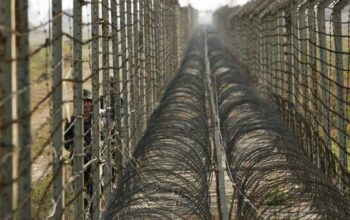By staff Reporter
ISLAMABAD: The amended Finance Bill 2022, or the federal budget for the fiscal year 2022-23, cruised through the National Assembly on Wednesday, along with additional measures like Rs50/liter petroleum levy, higher taxation for the salaried class, and a 10 percent super tax for the tax year 2022 and onwards.
Though the budget has been passed as desired by the IMF, it might take longer to strike a staff-level agreement as the Memorandum of Economic and Financial Policies (MEFP) sent to Pakistan by the IMF officials is incomplete. The document lacks some tables that would be shared in a few days.
The IMF seems in no hurry to finish their job and go home. The fund will take six weeks to take the case to its executive board for a final approval.
The establishment of a task force for anti corruption strategy has been placed either as Prior Action (PA) or Structural Benchmark (SB), but officials say placing any condition was not the IMF’s mandate.
The PAs under the IMF programme included passage of the budget as envisaged by the IMF, raising electricity tariffs, imposing a Rs10 per litre levy, and further tightening of monetary policy as well as the possibility of establishing a task force on anti corruption strategy.
The government also slapped capital value tax for the owners of cars exceeding 1300cc and foreign assets having value of more than Rs100 million.
The government had claimed that imposition of 10 percent Super Tax on 13 selected biggest manufacturing sectors was for one- time but the Finance Bill 2022 passed by the National Assembly stated that a Super Tax shall be imposed for tax year 2022 and onwards. There is no time limit inserted in the amended Finance Bill 2022.
For striking a staff-level agreement with the IMF, the government brought major changes in the budget 2022-23. The size of total federal budget has now escalated to Rs9.6 trillion whereby the FBR’s tax collection target has been increased to Rs7,470 billion, petroleum levy to Rs855 billion. The expenditures have been revised for keeping the budget deficit at 4.9 percent of GDP and posting a primary surplus of Rs152 billion for budget 2022-23. The pension amount has been jacked up to Rs609 billion, revenue surplus generated by the provinces reduced to Rs750 billion, and expenses of running of the government revised upward.
Sources told Independent Pakistan that the deregulation of oil prices was not made part of Prior Action of the IMF programme rather it was made a structural benchmark.
Federal Minister for Finance Miftah Ismail on Wednesday presented the amended Finance Bill 2022.
The government amended the Petroleum Products (Petroleum Levy) Ordinance 1961 and slapped a maximum limit of Rs50 per litre levy on High Speed Diesel (HSD), Motor Gasoline, Superior Kerosene Oil, Light Diesel Oil, High Octane Blending Component and E-10 gasoline. On one metric tonne of Liquefied Petroleum Gas (LPG) produced or extracted in Pakistan there will be a levy rate of Rs30,000.
The government jacked up the fixed tax rate for retailers by 100 percent that will not be appearing in the Active Taxpayer List (ATL). The FBR will charge Rs3,000 fixed tax through electricity bill where the amount does not exceed Rs30,000 for those registered with the FBR. For non ATL taxpayers, their tax rate will be Rs6000. Where the bill amount exceeds Rs 30,000 but does not exceed Rs50,000, the FBR will charge Rs5,000 from tax registered retailers but in case of non-registered retailers this rate will double to Rs10,000.
Where the amount exceeds Rs50,000 but does not exceed Rs100,000, the FBR will charge a fixed rate of Rs10,000 from registered persons. For the retailers not on the ATL, the fixed tax rate will be doubled and a fixed tax rate of Rs20,000 will be charged.
For salaried class, where the taxable ceiling does not exceed Rs600,000, there will be zero tax. Where taxable income exceeds Rs 600,000 but does not exceed Rs1,200,000, there will be a rate of 2.5 percent of the amount exceeding Rs600,000.
Where taxable income exceeds Rs1,200,000 but does not exceed Rs2,400,000, the FBR will collect Rs15,000 plus 12.5 percent of the amount exceeding Rs1,200,000. Where taxable income exceeds Rs2,400,000 but does not exceed Rs 3,600,000, the FBR will charge Rs165,000 plus 20 percent of the amount exceeding Rs 2,400,000. Where taxable income exceeds Rs3,600,000 but does not exceed Rs 600,000,000, the FBR will charge Rs 405,000 plus 25 percent of the amount exceeding Rs 3,600,000.
Where taxable income exceeds Rs 600,000,000 but does not exceed Rs 12,000,000, the FBR will charge tax amount of Rs1,005,000 plus 32.5 percent of the amount exceeding Rs6,000,000. Where taxable income exceeds Rs12,000,000, the FBR will charge tax amount of Rs2,955,000 plus 35 percent of the amount exceeding Rs12,000,000.
Copyright © 2021 Independent Pakistan | All rights reserved




